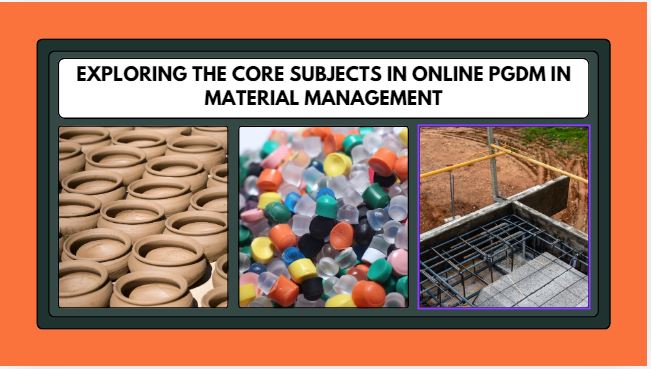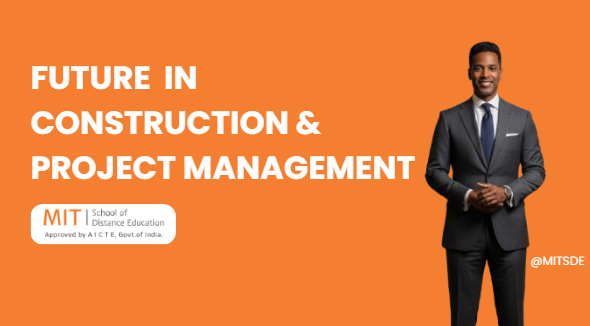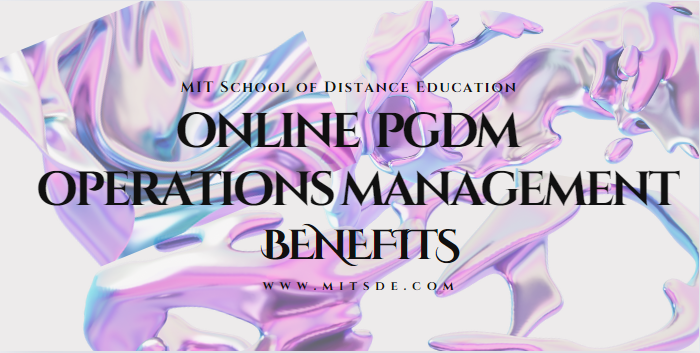
Introduction: Unveiling the World of Material Management
In today’s fast-paced business environment, efficient management of materials and resources has become a critical factor in organizational success. As companies strive to optimize their supply chains and streamline their operations, the demand for skilled professionals in material management has skyrocketed. This growing need has led to specialized educational programs like the Online Post Graduate Diploma in Material Management (PGDM).
In this blog post, we’ll delve deep into the core subjects that form the backbone of this program, providing you with a comprehensive understanding of what to expect when pursuing the best material management course.
Marketing Management: The Foundation of Business Success
Understanding the Fundamentals of Marketing
Marketing Management is crucial in the Online PGDM in Material Management curriculum. It provides students with a solid foundation in the principles and practices of marketing, which are essential for any business professional, regardless of their specialization.
The course typically covers:
- Market research and analysis
- Consumer behavior
- Product development and pricing strategies
- Promotion and advertising techniques
- Distribution channels and logistics
Applying Marketing Concepts to Material Management
While marketing might seem unrelated to material management at first glance, the two disciplines are closely intertwined. Understanding marketing principles helps material managers:
- Forecast demand more accurately
- Collaborate effectively with sales and marketing teams
- Develop strategies for product packaging and presentation
- Optimize inventory levels based on market trends
By integrating marketing knowledge with material management expertise, professionals can make more informed decisions that benefit the organization.
Accounting for Managers: Crunching the Numbers
The Importance of Financial Literacy
Accounting for Managers is another essential subject in the Online PGDM in Material Management program. This course equips students with the financial knowledge necessary to make sound business decisions and effectively manage resources.
Key topics covered in this subject include:
- Basic accounting principles
- Financial statement analysis
- Cost accounting and budgeting
- Investment decision-making
- Working capital management
Applying Accounting Principles to Material Management
In the context of material management, accounting knowledge is invaluable for:
- Calculating the total cost of ownership for materials and equipment
- Assessing the financial impact of inventory decisions
- Evaluating supplier contracts and negotiating better terms
- Preparing and analyzing budget reports for the procurement department
- Measuring the return on investment of material management initiatives
By mastering accounting concepts, material managers can speak the language of finance and make a stronger case for their strategies and decisions.
Business Communication: The Art of Effective Interaction
Developing Essential Communication Skills
Effective communication is more important than ever in today’s interconnected business world. The Business Communication course in the Online PGDM in Material Management program focuses on honing students’ verbal, written, and interpersonal communication skills.
This subject typically covers:
- Written communication (emails, reports, memos)
- Oral presentations and public speaking
- Active listening and feedback
- Nonverbal communication
- Cross-cultural communication
The Role of Communication in Material Management
Strong communication skills are crucial for material managers, who often need to:
- Negotiate with suppliers and vendors
- Collaborate with various departments within the organization
- Present proposals and reports to senior management
- Resolve conflicts and manage teams
- Communicate complex technical information to non-technical stakeholders
Material management professionals can build stronger relationships, improve team efficiency, and advance their careers by developing their communication skills.
Principles of Management: The Bedrock of Organizational Success
Mastering the Fundamentals of Management
The Principles of Management course provides students with a comprehensive understanding of the core concepts and theories that drive successful organizations. This subject is essential for anyone aspiring to take on leadership roles in material management or any other business function.
Key areas covered in this course include:
- Planning and decision-making
- Organizing and structuring teams
- Leading and motivating employees
- Controlling and measuring performance
- Change management and innovation
Applying Management Principles to Material Management
In the context of material management, understanding management principles helps professionals:
- Develop and implement effective material management strategies
- Led and motivated procurement and inventory management teams
- Align material management goals with overall organizational objectives
- Manage change and drive continuous improvement in supply chain processes
- Make informed decisions that balance efficiency, cost, and quality
By mastering these principles, material managers can become more effective leaders and contribute significantly to their organization’s success.
Indian Economy and Policy: Understanding the Business Landscape
Gaining Insight into Economic Factors
Understanding the country’s economic landscape is crucial for students pursuing an Online PGDM in Material Management in India. The Indian Economy and Policy course provides valuable insights into the economic factors influencing business decisions and material management practices.
This subject typically covers:
- Overview of the Indian economic system
- Fiscal and monetary policies
- Industrial policies and regulations
- Foreign trade and investment
- Economic reforms and their impact on businesses
Relevance to Material Management
Knowledge of the Indian economy and policy is particularly relevant for material managers because it helps them:
- Understand the impact of government policies on supply chains
- Navigate regulatory requirements for procurement and inventory management
- Assess the economic feasibility of sourcing decisions
- Anticipate and adapt to changes in the business environment
- Identify opportunities and challenges in the Indian market
By staying informed about economic trends and policies, material management professionals can make more strategic decisions that align with the broader business context.
Legal and Business Environment: Navigating the Regulatory Landscape
Understanding the Legal Framework
The Legal and Business Environment course in the Online PGDM in Material Management program focuses on the legal and regulatory aspects that impact business operations. This subject is crucial for ensuring compliance and managing risk in material management practices.
Key topics covered in this course include:
- Contract law and commercial transactions
- Intellectual property rights
- Labor laws and employee relations
- Environmental regulations
- Corporate governance and ethics
Applying Legal Knowledge to Material Management
In the field of material management, understanding the legal and business environment is essential for:
- Drafting and negotiating supplier contracts
- Ensuring compliance with environmental and safety regulations in procurement
- Managing intellectual property rights in the supply chain
- Adhering to labor laws in warehouse and logistics operations
- Implementing ethical practices in sourcing and supplier relationships
By solidly understanding the legal and business environment, material managers can protect their organizations from legal risks and ensure smooth operations.
Conclusion: Empowering Future Material Management Leaders
The Online PGDM in Material Management program offers a comprehensive curriculum that equips students with the knowledge and skills needed to excel in this critical business function. By mastering subjects such as Marketing Management, Accounting for Managers, Business Communication, Principles of Management, Indian Economy and Policy, and Legal and Business Environment, graduates are well-prepared to take on leadership roles in material management and contribute significantly to their organizations’ success.
As the business world evolves, the demand for skilled material management professionals is only expected to grow. By pursuing a Post Graduate Diploma in Material Management or a PG Diploma in Material Management, students and working professionals can position themselves for rewarding careers in this dynamic field.
Whether you’re looking to advance your career or transition into material management, investing in a quality education program is a crucial step. The best PG Diploma in Material Management programs, like the one we’ve explored in this blog post, offers a balanced mix of theoretical knowledge and practical skills directly applicable to real-world challenges.
As you consider your options for material management courses, remember that the subjects covered in these programs provide a solid foundation for success in various industries and roles. From manufacturing and retail to logistics and supply chain management, the skills you’ll gain through an Online PGDM in Material Management can open doors to exciting opportunities and help you make a lasting impact in your chosen field.
So, are you ready to take the next step in your material management journey? With the knowledge and skills gained from these core subjects, you’ll be well-equipped to face the challenges and seize the opportunities in this exciting and ever-evolving field.



